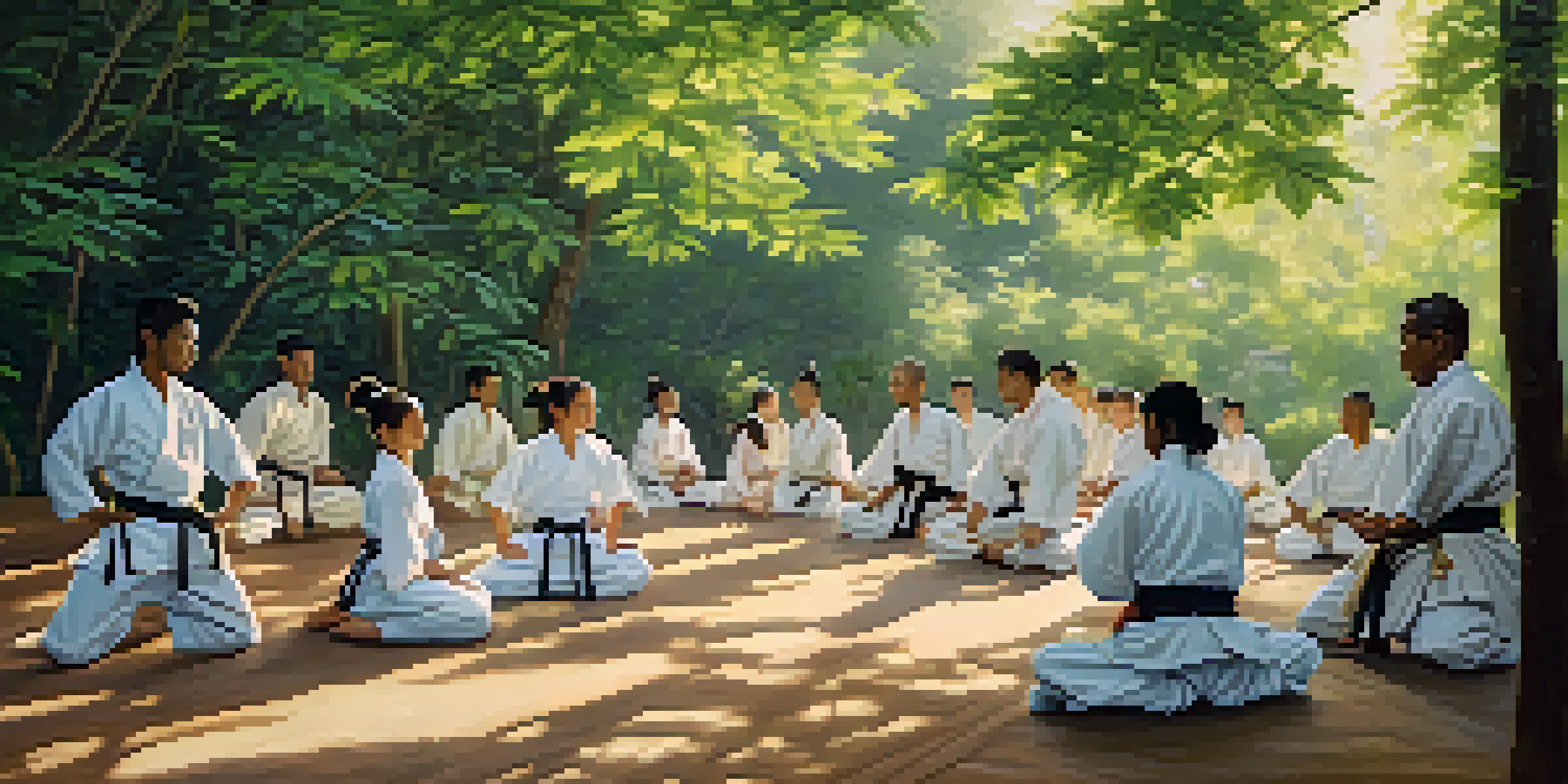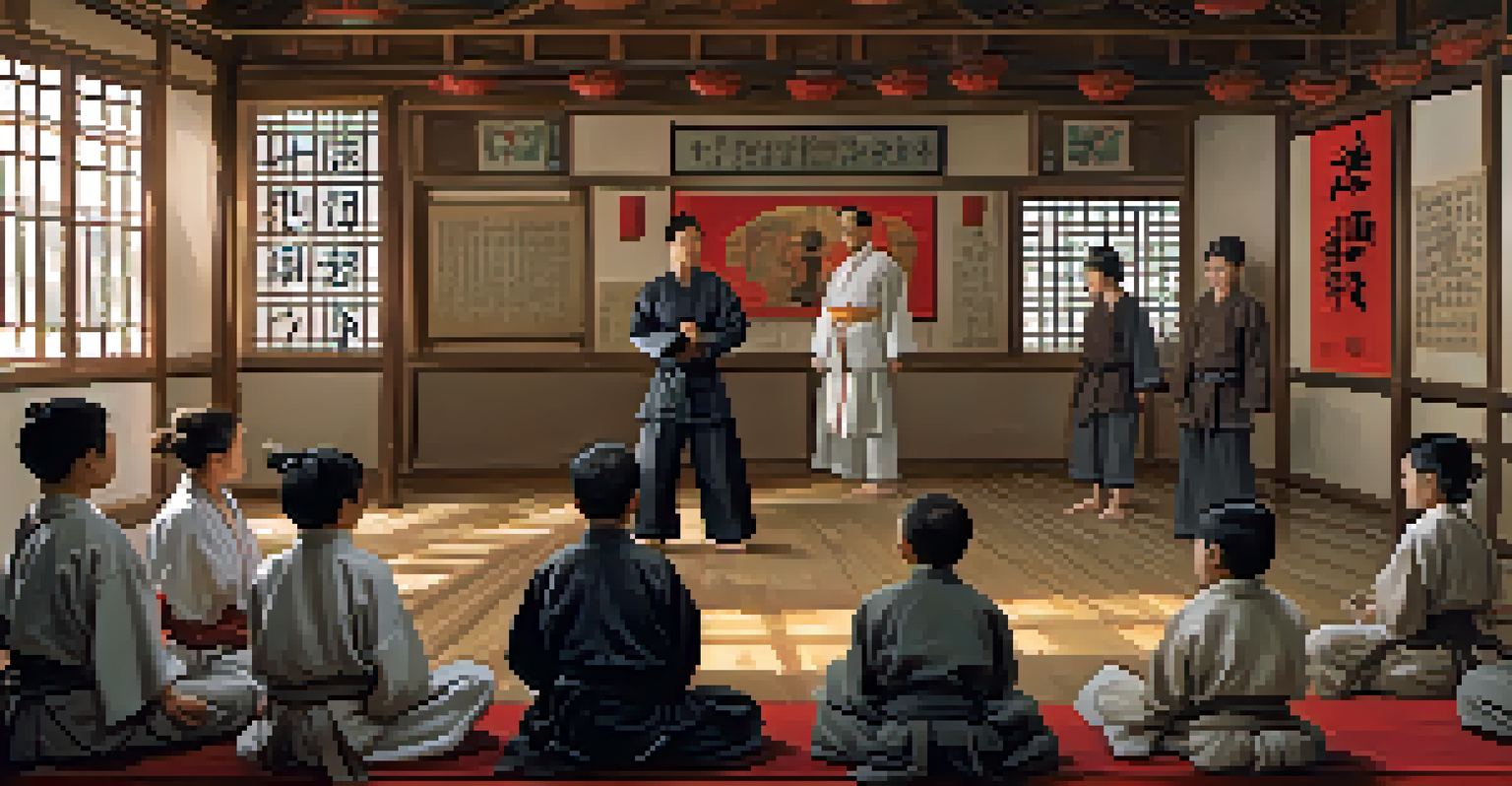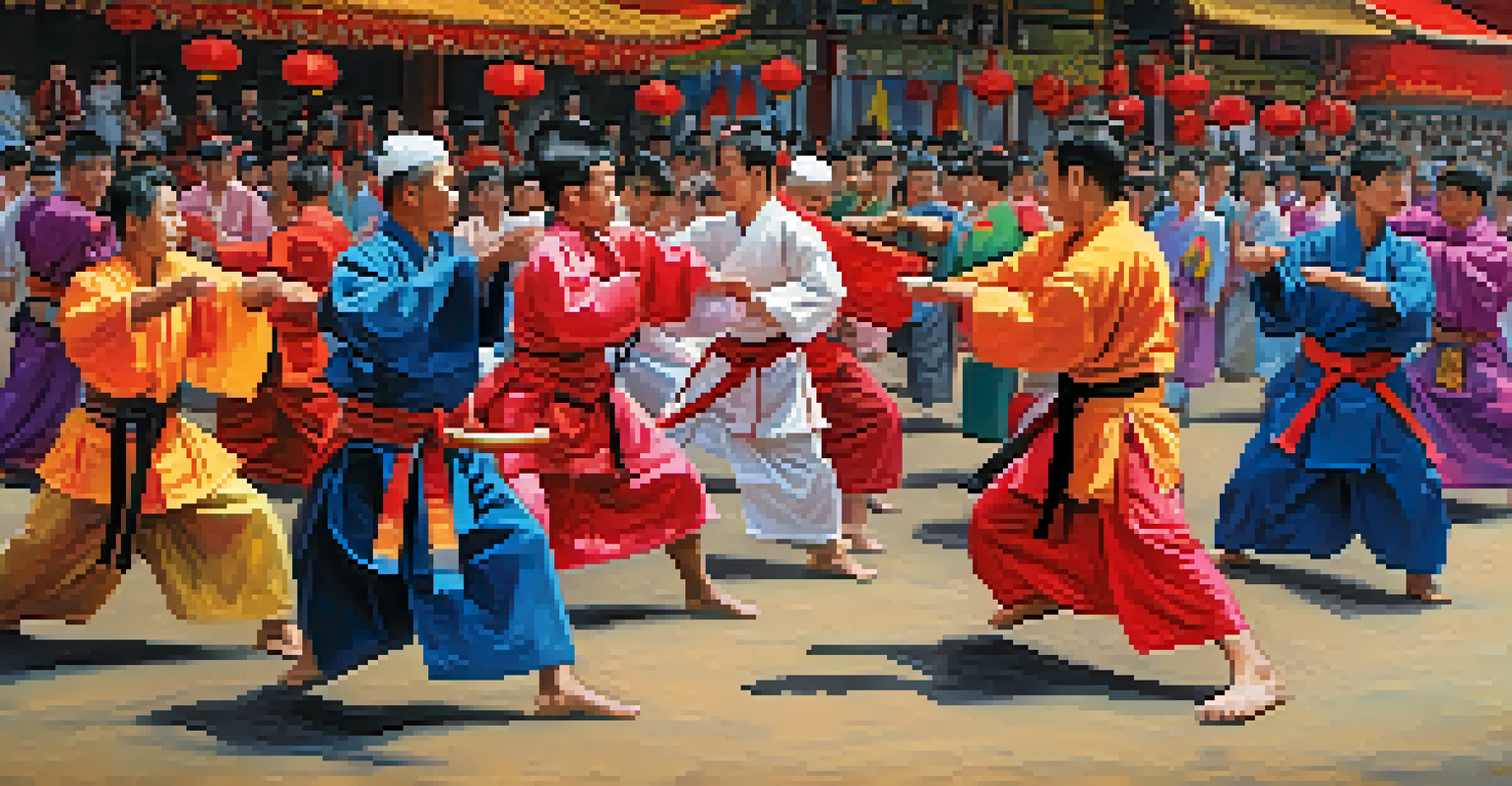Understanding Cultural Appropriation in Martial Arts Today

What is Cultural Appropriation in Martial Arts?
Cultural appropriation refers to the adoption of elements from one culture by members of another culture, often without understanding or respect. In martial arts, this can manifest when practitioners from outside a culture adopt its techniques, attire, or philosophies without acknowledging their origins. This practice can lead to misunderstandings and diminish the cultural significance of these martial arts forms.
Cultural appropriation is the taking of one culture's symbols, art, or traditions by members of another culture, often without understanding or respect.
For instance, when Western practitioners wear traditional gi or perform katas without grasping their historical importance, it can feel disrespectful to those who have trained in that culture for generations. Additionally, cultural appropriation often overlooks the struggles faced by the original culture, reducing rich traditions to mere trends. Understanding this concept helps us navigate the complexities of martial arts practice in a globalized world.
Ultimately, recognizing cultural appropriation in martial arts encourages a dialogue about respect, appreciation, and understanding. It invites practitioners to delve deeper into the histories and philosophies behind their training, fostering a more meaningful connection with the martial arts they practice.
The Fine Line Between Appreciation and Appropriation
Appreciation involves a genuine respect and understanding of a culture, while appropriation often lacks this foundation. In martial arts, appreciation can be seen when individuals actively engage with the culture, learning its history and values alongside its techniques. For example, practitioners who study the philosophy of a martial art, participate in cultural events, and learn from masters demonstrate appreciation.

Conversely, appropriation may appear when martial arts are marketed solely as fitness trends, stripped of their cultural context. This commercialization can lead to a disconnect, where the original meanings and practices are lost. Such scenarios highlight the importance of discerning genuine engagement from superficial participation.
Cultural Appropriation Defined
Cultural appropriation in martial arts occurs when practitioners adopt techniques and philosophies without understanding their origins, leading to disrespect.
To navigate this fine line, it's crucial for martial artists to educate themselves and seek guidance from those within the culture. Building relationships with instructors or communities rooted in the tradition can foster a deeper understanding and respect, ultimately enriching the practice for everyone involved.
Historical Context of Martial Arts and Cultural Exchange
Martial arts have a rich history of cultural exchange, often evolving through interactions between different societies. For instance, the blending of Chinese martial arts with Japanese techniques over centuries showcases a mutual respect and understanding. Such historical exchanges highlight the importance of cooperation and learning from one another rather than appropriation.
To appreciate a culture is to understand its history and significance, not just to adopt its elements superficially.
Understanding this historical context can help martial artists appreciate how their chosen discipline has developed. It reveals how practices evolve and incorporate influences while maintaining their core values. This awareness can inspire practitioners to honor the origins of their martial arts while embracing its contemporary practice.
Recognizing the history of martial arts also encourages dialogue about how cultural exchange can be conducted respectfully today. This conversation can lead to a more connected martial arts community that values both tradition and innovation, ensuring that cultural roots are preserved even as practices evolve.
The Role of Education in Combatting Cultural Appropriation
Education plays a vital role in understanding and addressing cultural appropriation in martial arts. By learning about the origins, philosophies, and techniques of a martial art, practitioners can foster a genuine connection to the culture. Educational resources, workshops, and discussions can provide insight into the significance of various practices and help prevent appropriation.
For example, martial arts schools that include cultural education in their curriculum can create a more inclusive environment. Students who understand the history and context of their training are more likely to respect and honor its traditions. This proactive approach not only enriches their experience but also promotes cultural sensitivity.
Appreciation vs. Appropriation
Genuine appreciation of martial arts involves respecting and understanding the culture, while appropriation often reduces these traditions to mere trends.
Moreover, encouraging open discussions about cultural appropriation within the martial arts community can facilitate awareness and understanding. Engaging in dialogues allows practitioners to share their perspectives and experiences, fostering a culture of respect and appreciation for the diverse backgrounds that contribute to martial arts.
Impact of Social Media on Cultural Appropriation Awareness
In today's digital age, social media has become a platform for discussing cultural appropriation in martial arts. It provides a space for individuals to share their experiences, insights, and critiques, raising awareness about appropriation issues. This increased visibility can help practitioners reflect on their practices and become more conscious of the cultural implications of their actions.
However, social media can also perpetuate appropriation if not approached thoughtfully. Viral trends may lead to the commodification of martial arts practices, where cultural elements are stripped of their meaning and presented as mere entertainment. It's essential for users to engage critically with the content they consume and share, ensuring that they promote respectful practices.
By using social media as a tool for education and dialogue, the martial arts community can work towards a more respectful understanding of cultural appropriation. This collective effort can inspire practitioners to honor the roots of their discipline while celebrating the diversity within the martial arts world.
How Practitioners Can Respect Cultural Origins
Practitioners can respect the cultural origins of martial arts by immersing themselves in the traditions they study. This involves learning about the philosophy, history, and values tied to their practice. For instance, attending cultural events, reading literature on martial arts history, and seeking mentorship from experienced practitioners can foster a deeper understanding.
Additionally, being mindful of how martial arts are presented and practiced is crucial. Practitioners should aim to honor the techniques and philosophies rather than treating them as mere fitness routines. This respect for the origins can be demonstrated in how they discuss their training and the significance it holds.
Education's Role in Respect
Education is vital in addressing cultural appropriation, as it fosters a deeper connection to the culture and promotes respect for its traditions.
Ultimately, taking the time to honor the cultural roots of martial arts enriches the experience for practitioners and shows respect to those who have come before them. By acknowledging and valuing the history of their practice, martial artists can contribute to a more respectful and appreciative environment.
The Future of Cultural Appropriation in Martial Arts
As martial arts continue to evolve and spread globally, the conversation around cultural appropriation will remain relevant. Practitioners and instructors must prioritize understanding and respect as they embrace diverse influences. The future of martial arts depends on fostering an environment of appreciation rather than appropriation, ensuring that the cultural significance of these practices is preserved.
This future can be shaped by incorporating cultural education into training programs and encouraging open dialogues about appropriation. By creating spaces where practitioners can learn and discuss these issues, the martial arts community can cultivate a culture of respect that honors its diverse roots. Such initiatives can lead to a more profound and enriching experience for all involved.

Ultimately, the future of martial arts lies in the ability to blend tradition with modern practice while maintaining respect for cultural origins. By working together, practitioners can ensure that martial arts continue to thrive as a source of empowerment, connection, and respect across cultures.